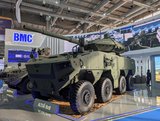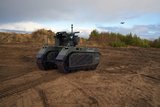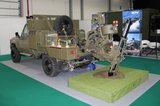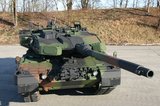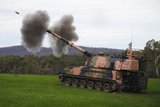Hanwha contracted to develop radar for South Korean missile defence
Plans for the Iron Dome were approved in June 2021 to protect against North Korean long-range artillery. (Photo: DAPA)
South Korea has taken another step towards developing its own version of Israel’s Iron Dome in an effort to protect itself, particularly the country’s capital Seoul, against missiles flying at low altitudes over short distances and artillery.
The country’s Hanwha Systems has received a contract valued at KRW131.5 billion (US$92 million) to develop the radar for the LAMD, a system described by the company as a “Korean-style Iron Dome”.
In a statement the company said: “The LAMD is designed to intercept large numbers of missiles flying at low altitudes and over short distances.
“Since it can respond to missiles approaching
Already have an account? Log in
Want to keep reading this article?
More from Land Warfare
-
![US Army plans Q2 prototype proposal request for its Mobile Tactical Cannon programme]()
US Army plans Q2 prototype proposal request for its Mobile Tactical Cannon programme
The US Army is seeking a mature 155mm, wheeled, self-propelled capability to replace the towed M777 howitzer in the Stryker, Mobile and Infantry Brigade Combat Teams as it targets a potential 498-unit acquisition goal.
-
![British Army’s Project Stokes 120mm mortar bids due in March 2026]()
British Army’s Project Stokes 120mm mortar bids due in March 2026
Project Stokes could see a new 120mm mortar capability enter British service, with domestic production and international partnerships central to competing bids.
-
![MKJ Warrior Series — The Nett Warrior Qualified Connector for Today’s Soldier Systems]()
MKJ Warrior Series — The Nett Warrior Qualified Connector for Today’s Soldier Systems
ITT Cannon’s MKJ Warrior connectors are designed for the harshest environments, delivering mission critical comms, navigation and USB data/power.
-
![Active vehicle protection comes to the forefront as Trophy and Iron Fist secure contracts]()
Active vehicle protection comes to the forefront as Trophy and Iron Fist secure contracts
Experience on the battlefield is accelerating the adoption of active protection systems as technologies continue to evolve to reflect shifting global defence needs.
-
![World Defense Show 2026: Hanwha increases Middle East presence and reveals Tigon 6x6 sale]()
World Defense Show 2026: Hanwha increases Middle East presence and reveals Tigon 6x6 sale
Shephard sat down with Hanwha Middle East and Africa president Sung Il at World Defense Show 2026 to hear about the company’s plans for the region and how it plans to use local industry success to win deals.









